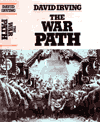|
Jae A of Minnesota asks on Wednesday, December 24, 2008 the sixty-four thousand dollar question: How did WW2 happen? Jae
may be blond, but she has a knack
WHAT exactly caused World War II? Can you give me the abridged version? Jae A. (Mrs).
  Lancasters of No.617 Squadron attack the Ruhr Dams in May 1943. See David Irving's book, Die Nacht in der die Dämme Brachen (1992), already serialised as The Dambusters by the The Sunday Express in 1968 David Irving replies:
Short version: Hitler, just in power, wanted to consolidate his German/Austrian union by scoring a cheap military victory over weak neighbour Poland, and at the same time to extend his empire. Stalin wanted the other half of Poland. They struck a deal. Britain had promised to help Poland if attacked (in secret annexe: "by Germany." I.e., as usual, some exclusions apply.) Hitler attacked Poland, September 1, 1939. On the third, we declared war on Hitler (but not on Stalin). France was bound by treaty to help Britain. Hitler assumed British would renege on their obligations: we usually don't, and didn't. Unable to win alone, Britain dragged in first our own empire (Canada being very reluctant), and then -- through connivance with Roosevelt -- in December 1941 the United States, we both having provoked Japan into a war by imposing death-dealing sanctions on her including a petroleum embargo late in July 1941. Japan had no choice but to strike at her oil-rich neighbours, including British possessions. QED. It is easy to get into wars, said someone; but very difficult to get out of them. | ||||||||||

